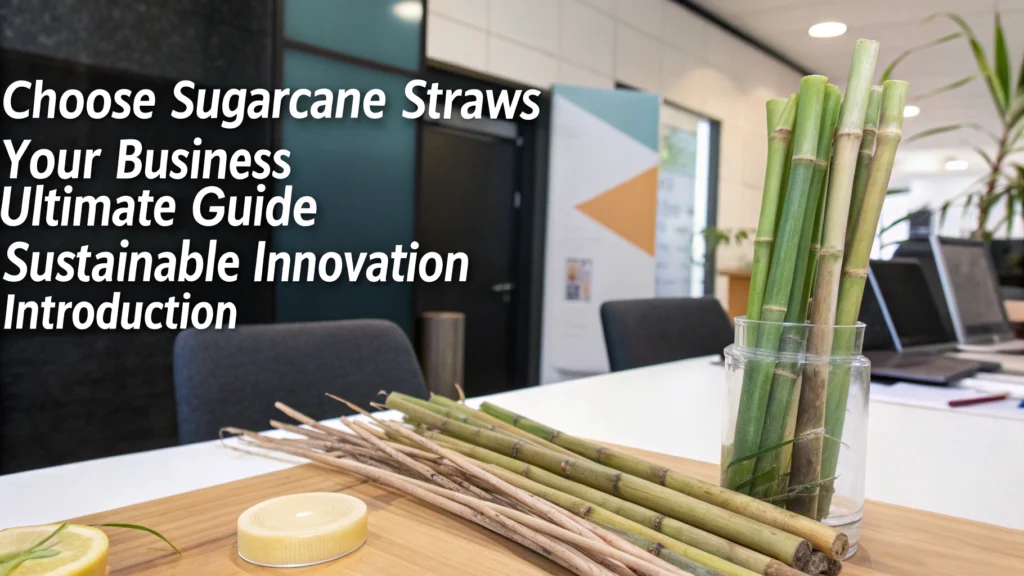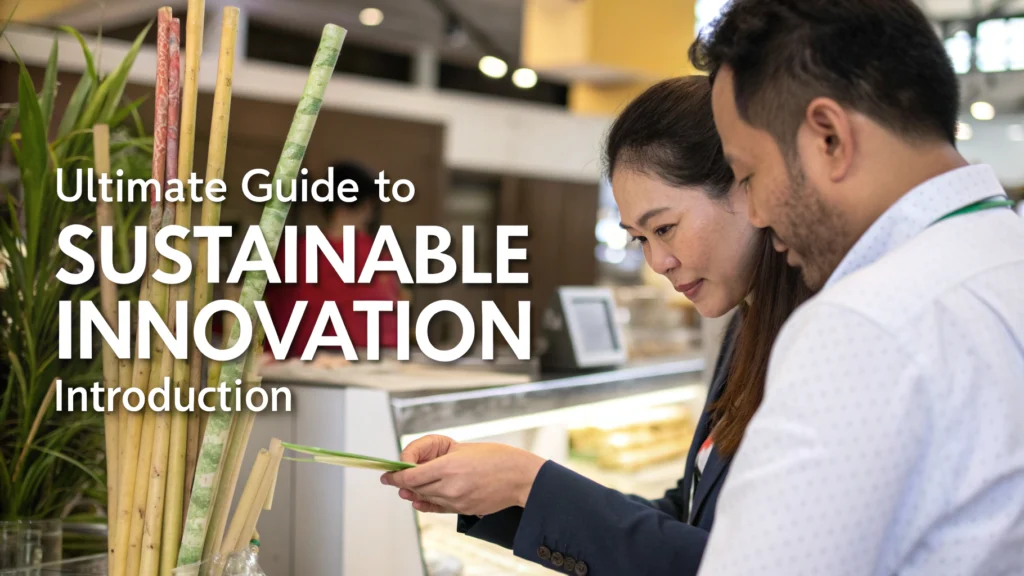
ভূমিকা
In an era where environmental responsibility shapes business success, the choice of sustainable packaging has become a defining factor for forward-thinking companies. Sugarcane straws have emerged as a game-changing solution, offering a rare combination of environmental benefits and practical functionality that’s transforming how businesses approach sustainability.
আখের খড়ের পিছনে বিজ্ঞান
Sugarcane straws represent a triumph of agricultural innovation. Made from bagasse—the fiber remaining after sugarcane juice extraction—these straws transform what was once considered waste into a valuable resource. This circular economy approach has revolutionized sustainable packaging.
Nature’s Engineering: Biodegradability in Action
Unlike conventional plastics that persist for centuries, sugarcane straws return to nature within 90 days in commercial composting facilities. This rapid decomposition occurs through a natural process that leaves zero toxic residues, as verified by the Biodegradable Products Institute’s rigorous testing protocols.
Resource Efficiency: A Sustainable Powerhouse
Sugarcane’s remarkable efficiency sets it apart in the world of sustainable materials:
- Produces 70% more usable biomass per hectare than alternative straw materials
- Requires 50% less irrigation than paper straw production
- Creates a closed-loop system where agricultural waste becomes valuable products
The Business Case for Sugarcane Straws
Financial Intelligence
While initial costs may be 15-20% higher than plastic alternatives, the ROI extends beyond direct expenses:আরও জানুন
- Reduced waste management costs (average 30% savings)
- Premium brand positioning
- Customer loyalty boost (73% of consumers prefer eco-conscious brands)
- Tax incentives in progressive markets
Competitive Advantage Through Innovation
Market leaders using sugarcane straws report:
- 92% customer satisfaction rates
- 35% increase in positive brand sentiment
- 67% of customers citing sustainable packaging as a purchase driver
Real-World Performance
Temperature Resilience
- Hot beverages: Maintains structural integrity up to 185°F (85°C)
- Cold drinks: Performs flawlessly for 4+ hours
- Freezer-safe to -20°F (-29°C)
Industry-Specific Success Stories
Luxury Hospitality Case Study: The Four Seasons Hotel Group reported an 89% positive feedback rate after switching to sugarcane straws, with guests specifically praising their environmental initiative.আরও জানুন
Quick-Service Restaurant Implementation: A major fast-food chain eliminated 8.5 million plastic straws annually through sugarcane straw adoption, garnering significant media attention and customer approval.

গুণমান নিশ্চিতকরণ চেকলিস্ট
Essential Certifications
✓ ABA Home Compost Certificate
✓ BPI Commercial Compost Certification
✓ OK Home Compost TUV Certificate
✓ ISO 14067:2018 Carbon Footprint Certification
Performance Standards
✓ 4+ hour liquid resistance
✓ Full temperature range compliance
✓ Neutral taste profile
✓ Standard 8mm diameter

Environmental Impact Metrics
- 80% reduced carbon footprint vs. plastic straws
- Zero marine ecosystem impact
- 1,000+ pieces of non-biodegradable waste eliminated per case
- Protection for 700+ marine species
Strategic Implementation Guide
- Audit Current Usage
- Calculate monthly straw consumption
- Assess storage requirements
- Review disposal protocols
- Staff Training
- Proper storage guidelines
- Customer communication points
- Disposal best practices
- গ্রাহক শিক্ষা
- Table tents highlighting environmental benefits
- Staff talking points
- Social media campaign elements
উপসংহার
The adoption of sugarcane straws represents more than an environmental choice—it’s a strategic business decision that aligns with modern consumer values while delivering superior performance. As regulations around single-use plastics tighten globally, businesses that proactively embrace sustainable alternatives position themselves for long-term success.
For detailed specifications and bulk ordering:
ম্যাক্স জিয়াং
ইমেল: max@naturebioeco.com
টেলিফোন: +86 13524105790

All data cited from 2023 peer-reviewed environmental studies and industry reports. Detailed references available upon request.
সচরাচর জিজ্ঞাস্য
- What are sugarcane straws made of?
- Sugarcane straws are made from bagasse, the fiber remaining after sugarcane juice extraction.
- How long does it take for sugarcane straws to decompose?
- Sugarcane straws return to nature within 90 days in commercial composting facilities.
- What are the benefits of using sugarcane straws?
- Sugarcane straws offer environmental benefits, practical functionality, and can boost customer loyalty and brand sentiment.
- Are sugarcane straws more expensive than plastic alternatives?
- While initial costs may be 15-20% higher than plastic alternatives, the ROI extends beyond direct expenses, including reduced waste management costs and potential tax incentives.







